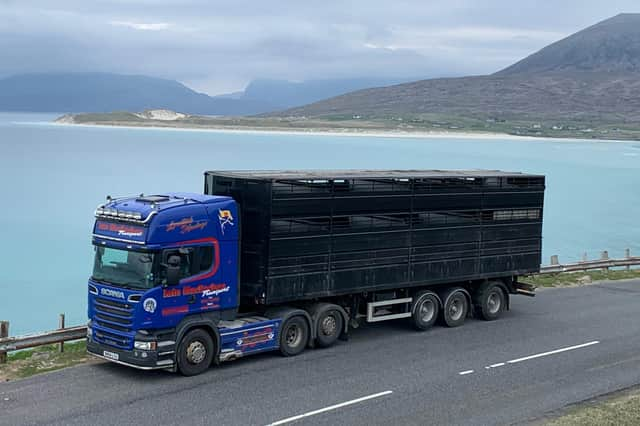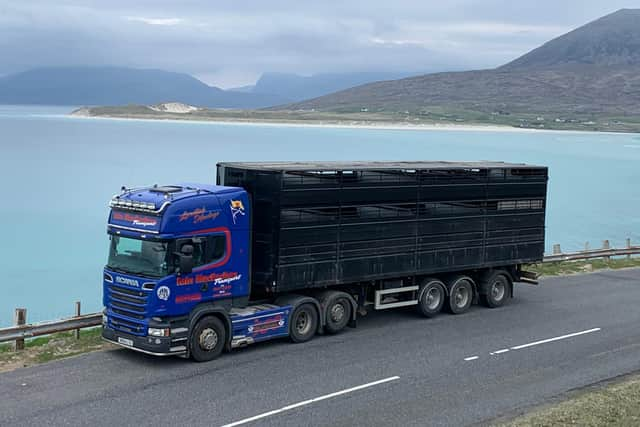Proposals a "serious threat" to island livestock production


The Scottish Government are currently considering responses to a consultation, following proposals by the Farm and Animal Health Committee to government.
The main focus is on ferry journeys over to the continent but the new rules, if enforced, would also apply to sea crossings within the UK.
Advertisement
Hide AdAdvertisement
Hide AdThe committee have recommended that no animal be transported on a ferry when wind conditions reach force six – 25 miles per hour – or above “as these conditions have been shown to cause motion sickness in sheep and cattle”. There would also be a ban on journeys where the outside temperature dips below five degrees centigrade.


Island livestock sales are held from August to December when wind conditions often exceed the proposed ceiling.
The issue has already caused outrage in Orkney and Shetland.
Scottish Crofting Federation chair Donald MacKinnon, from Arnol, said: “The proposed changes to animal transport regulations are a serious threat to continuing livestock production in the islands.“Applying arbitrary wind speed restrictions to sea crossings is completely unworkable. SCF is clear that the decision on whether to carry livestock must remain with the vessel’s master.
Advertisement
Hide AdAdvertisement
Hide Ad“We are fortunate to be served by highly skilled and experienced hauliers across the Highlands and Islands, who take great care in transporting our livestock. If further restrictions are introduced they must be supported by evidence of need. Little or no evidence has been used to support these dangerous proposals.”
In their official response to the consultation, the SCF suggested that, if the intention was to reduce the number of journeys livestock are forced to undertake, then the best way forward would be to deliver a network of local abattoirs, many of which have closed over the years.
“It would be more appropriate to the central objective of these recommendations, to increase the number of abattoirs (and marts) so that longer journeys are less likely,” said the SCF.
“Many abattoirs across Scotland have been closed under, what appears to be, a systematic centralising by Scottish Government. The dearth is most apparent in the Highlands and Islands, where the travelling distances are longest. We need local abattoirs for animal welfare and for provenance of local food.”
Advertisement
Hide AdAdvertisement
Hide AdNFU Deputy President Stuart Roberts said: “Maintaining high welfare through transport is absolutely crucial and every single farmer wants to ensure their livestock arrive at their destination in good health.
“Transporting livestock and poultry is an integral part of UK food production. The suggested changes to journeys based on duration and weather conditions would cause serious delays and disruption, potentially damaging welfare outcomes, while changes to vehicle requirements would add significant costs and lead to many more journeys being made, increasing greenhouse gas emissions which work against both farming’s and the government’s net zero targets.”